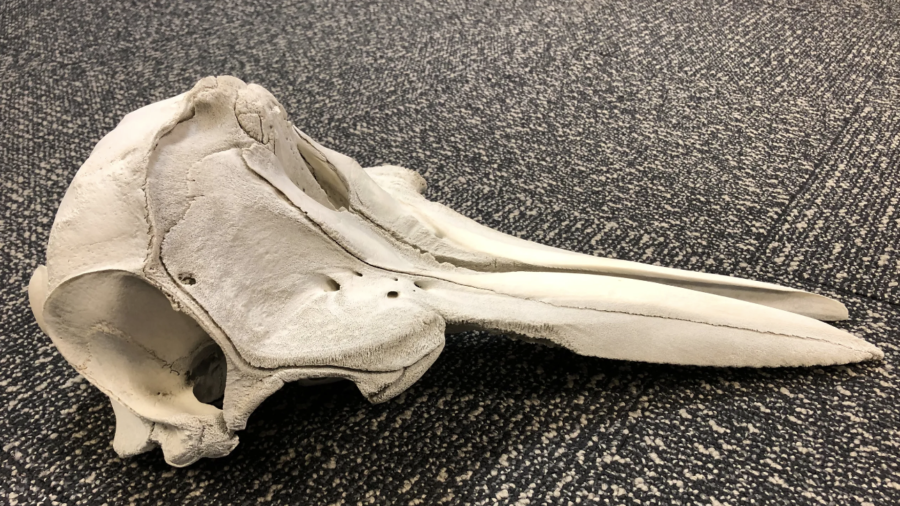A dolphin skull was discovered at Detroit Metropolitan Airport in late January.
U.S. Customs and Border Protection (CBP) agriculture specialists uncovered the skull during inspections of unaccompanied international baggage the previous week, according to a Feb. 3 news release.
The luggage had been separated from its owner while in transit, and upon entering the United States, a routine X-ray screening revealed a skull-shaped object in one of the bags.
Upon further examination by officials, the skull was found to be from a young dolphin.
“The possession of wildlife items, especially those of protected animals is prohibited,” Area Port Director Robert Larkin said in the news release. “We take wildlife smuggling seriously and work closely with our federal partners at the U.S. Fish and Wildlife Service to protect wildlife and their habitats.”
Certain fish, wildlife, and products derived from them fall under import and export restrictions, as well as other requirements. Dolphins are protected under America’s Marine Mammal Protection Act and some species are also listed under the Endangered Species Act, according to the National Oceanic and Atmospheric Administration. They, as well as their bones, are regulated by import and export restrictions.
The dolphin skull has been handed over to wildlife inspectors in the U.S. Fish and Wildlife Service for further investigation.
Travelers are reminded to learn more about U.S. rules and regulations, which represent the country’s values of conserving the natural environment, before bringing wildlife items into the country to avoid penalties, seizures, and even arrest.
Other recent seizures by the CBP have also highlighted their important role in protecting U.S. wildlife. On Jan. 17, CBP officers at the Louisville Port of Entry discovered a package containing 120 cockfighting spurs—razor-sharp spurs designed to make cockfights more lethal, which are attached to the birds’ natural spurs.
The package was sent from Mexico City to Rantoul, Illinois, according to the CBP. The spurs were labeled as “handcrafted Mexican artisan rattles.” It is illegal to buy, sell, or deliver sharp instruments for use in animal fighting ventures in the United States.
Cockfighting is a sport in which the birds are penned up and fight until injury or death. It is banned across the country under the 2018 Farm Act. The razor-sharp metal spurs make the fights more dangerous for the birds and their handlers, who are often slashed by their own animals.
In the news release, LaFonda Sutton-Burke, director of field operations at CBP’s Chicago field office, called the seizure “a great job by our officers keeping dangerous and illegal items from reaching our community.”

